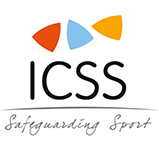ICSS Integrity Experts co-author chapter on match-fixing and illegal betting in new OECD report
ICSS Sport Integrity Experts have contributed to a new report by the Organisation for Economic Co-operation and Development (OECD) on countering illicit trade and match-fixing in sport.
Launched in April 2016, the new report published by the OECD’S Task Force on Countering Illicit Trade (TF-CIT) examines the magnitude, flows and drivers of illicit trade and the illegal economy and features a dedicated chapter authored by ICSS Sport Integrity experts, Fred Lord and Stuart Page, which explores sports-results manipulation and illegal betting as an economic crime.
In addition to highlighting several key findings from the Sorbonne-ICSS Sport Integrity Report and underlining the effectiveness of police action in co-operation with financial institutions in tackling illegal betting – one of the main drivers of match-fixing – the chapter also lists several pro-active measures that could be implemented to address match-fixing and illegal betting.
These measures include:
- Injunctions addressed to illegal betting websites.
- Drawing up a black list of illegal operators.
- Blocking illegal websites (via Internet Access Providers).
- Blocking the payment of winnings made through an illegal provider.
- Prohibiting advertising of and by illegal operators.
- The principle of mutual exclusion: the public authorities in charge of regulating bets should not grant a national licence to an operator that does not comply with the rules established in another state. An operator’s licence should also be revoked if the operator commits illegal act in another country.
- Establishing an offence for illegal betting e.g. betting on an illegal website is criminally reprehensible; therefore, the individual should be responsible for identifying legal/illegal websites and not betting on an illegal website.
The report also goes further and says that – whilst many stakeholders within the sports industry acknowledge the scale of the threat – at the moment a co-ordinated and proactive international response remains elusive and that current efforts from sporting bodies and governments have not kept pace with criminal innovation.
In line with the ICSS’s aim to service and benefit the safety, security and integrity of sport, ICSS Sport Integrity experts will continue working within OECD Task Force on Illicit Trade, which aims to identify emerging criminal methods, as well as developing effective strategies to map and track illicit trade and interconnected criminal networks.
For further information on the OECD TF-CID, please visit: http://www.oecd.org/gov/risk/oecdtaskforceoncounteringillicittrade.htm
To view and purchase a full copy of the OECD,
please visit: http://www.oecd.org/gov/risk/charting-illicit-trade-9789264251847-en.htm

